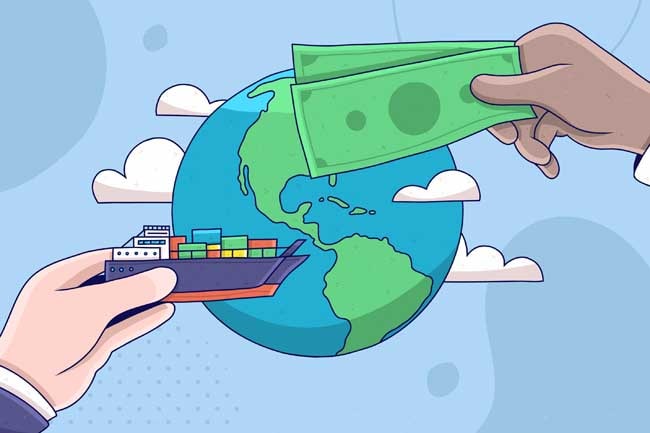So you’ve been captivated by the concept of forex trading, right? Quick profits, a flexible work schedule, and global financial opportunities. All these factors combine to make it appealing. But have you considered where you’ll put your money? We’re talking about brokers—offshore ones, to be precise. Now let’s delve deep!
What is Offshore Forex Trading?
Offshore forex trading involves using a broker that is registered in a foreign jurisdiction rather than in your home country. These brokers might offer enticing trading conditions, but they come with their own set of challenges. Think of it as taking a scenic detour on a road trip. The views might be great, but you better be prepared for some unexpected bumps along the way.
Why People Choose Offshore Forex Brokers
There’s a certain allure to offshore Forex brokers, isn’t there? They often offer highly leveraged trading accounts, more financial instruments, and what people perceive as more ‘flexible’ trading conditions. For some traders, this could feel like finding a hidden gem in a sea of stones.
- Higher Leverage: More bang for your buck.
- More Financial Instruments: A broader playground.
- Flexible Regulations: Less red tape.
- Tax Benefits: Potential tax advantages.
The Allure of Lower Regulation
The idea of lower regulation can be tempting. It’s like an open highway with no speed limits; you can go as fast as you want. But what if there are hidden speed bumps, or worse, a cliff at the end of the road?
- Less Paperwork: Quicker to get started.
- More Freedom: Trade how you want.
- Riskier Instruments: High risk, high reward.
Potential Risks
Let’s go through a few potential risks while working with offshore Forex brokers.
Regulatory Risks
Limited oversight could mean the broker might not be following ethical guidelines. There may be no formal dispute resolution process, and regulators may not hold them accountable for misdeeds. Imagine going on a safari without a guide—you’ll want to be extra cautious because the danger of facing a wild animal is all too real.
Financial Risks
In the worst-case scenario, the broker could go bankrupt, and your funds may not be insured. It’s like investing in a startup. It could be the next big thing or could go bust leaving you with nothing but regrets.
Operational Risks
From glitchy platforms to poor customer service, operational risks are like a restaurant with bad service and worse food. You might manage a single visit, but would you want to dine there again?
Reputational Risks
A bad reputation travels fast. Once an offshore broker gains a negative reputation, it can be tough to separate fact from fiction. It’s like dating someone who has a history of bad relationships—you’ll always wonder if you’re the rule or the exception.
How to Mitigate the Risks
Let’s go through a few steps to mitigate the risk of working with offshore Forex brokers.

Doing Your Homework
Before signing up with any broker, it’s crucial to do your homework. Look for verified reviews, research their financial stability, and maybe even check out their offices if possible. It’s your hard-earned money on the line, so treat this step like studying for a final exam.
Reading Reviews and Testimonials
Sure, you can get a lot from online forums and reviews but remember to cross-reference them with other reliable sources. Think of this step like checking the reviews of a hotel and also asking friends who have stayed there.
Setting Up a Test Account
Most brokers will let you set up a demo account. It’s the most practical way to test the trading conditions, software, and customer support. Think of it as a free trial for a streaming service—you want to know exactly what you’re getting before you commit.
Legal Implications
There are certain legal implications while working with offshore Brokers.
Tax Liabilities
Trading with offshore brokers could create tax complications. You need to be fully aware of any reporting requirements and tax obligations in your home country. Not understanding the tax implications is like stepping on a Lego—it hurts, and you should have seen it coming.
Legal Jurisdiction
When you trade offshore, you’re subject to the laws of the broker’s jurisdiction. It’s like playing an away game; the home team (the broker) knows the ground better than you do.
The Alternatives to Offshore Forex Brokers
Let’s have a look at a couple of alternatives to offshore Forex Brokers
Domestic Brokers
If the risks of offshore trading don’t seem worth it, domestic brokers are an alternative. They’re subject to stricter regulations, which can offer more protection. But like a well-cooked homemade meal, it might lack the exotic flavors you’re searching for.
Regulated International Brokers
These are international brokers but with proper regulation from reputable financial organizations. Think of it as the best of both worlds; you get international exposure without the risks of going completely offshore.
Conclusion
Offshore forex brokers can offer tantalizing benefits like high leverage and low regulation, but these come with significant risks. To manage these risks, thorough research and prudent actions are required. Always remember, if something seems too good to be true, it probably is.

